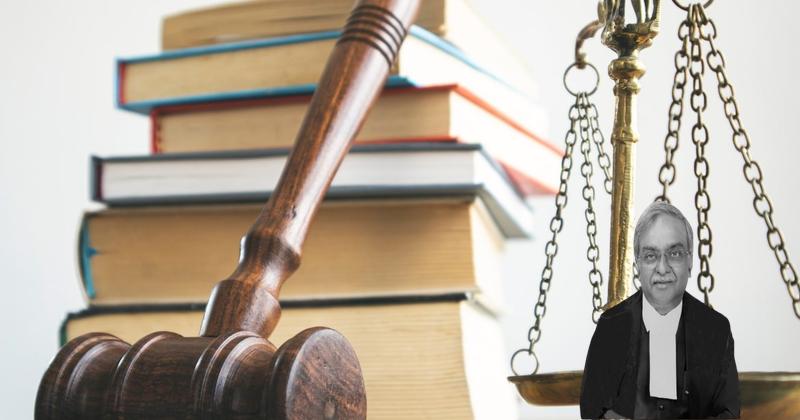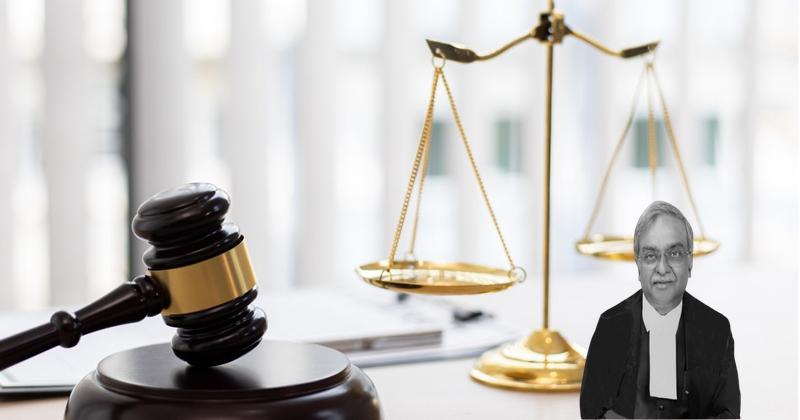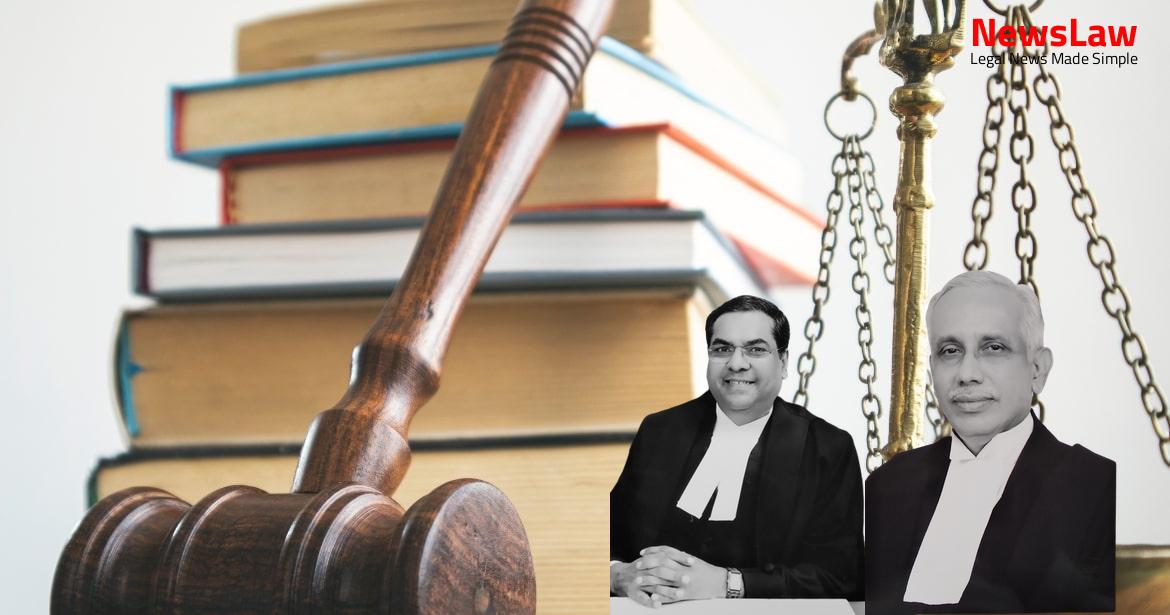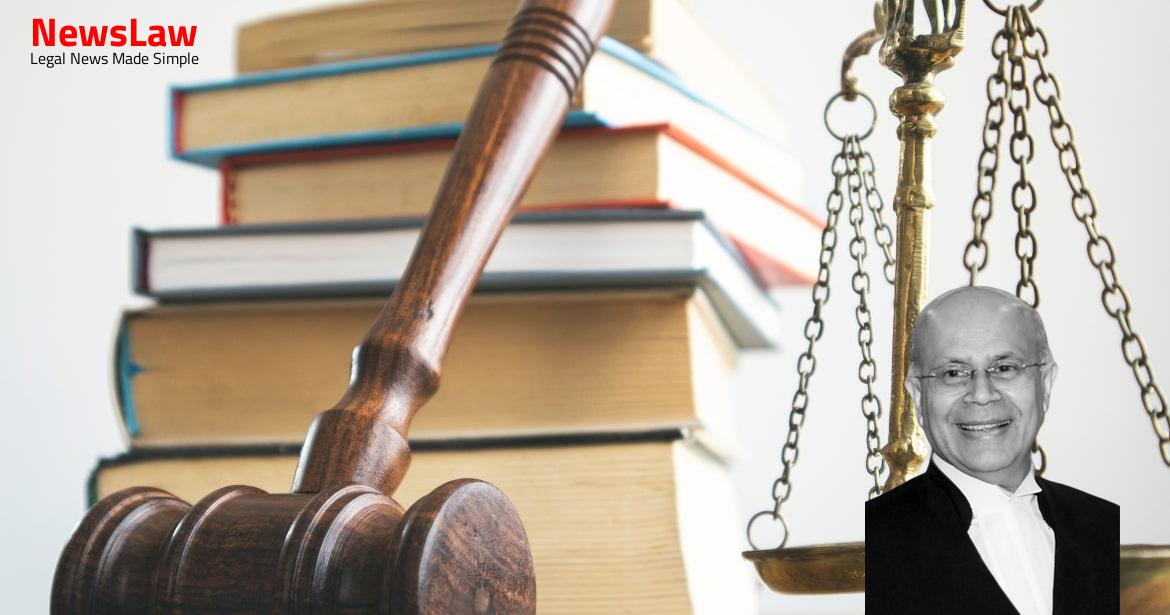Insofar as the other appeals are concerned, it was submitted that, in addition to the three common issues, certain 4 additional issues were also involved and it was agreed that after those two appeals are decided, the other appeals should be heard for considering these additional issues. (ii) Whether for computing ‘Change in Law’ relief, the operating parameters should be considered on ‘actuals’ OR as per technical information submitted in bid? The first issue was answered by this Court, holding that the ‘Change in Law’ relief for domestic coal shortfall should be on ‘actuals’.
Also Read: https://newslaw.in/case-type/criminal/abuse-of-process-of-law-a-case-of-delayed-fir-filing/
These cross appeals challenge the common judgment and order dated 14 August 2018 passed by the learned Appellate Tribunal for Electricity, New Delhi (hereinafter referred to as “APTEL”) in Appeal No 111 of 2017 & I.A. GWEL had entered into long term Power Purchase Agreements (“PPAs” for short) with DNH-DISCOM for supply of 200 MW power to Maharastra State Electricity Distribution Company Limited (“MSEDCL” for short) on 17 March 2010 [“MSEDCL PPA”) and for supply of 200 MW power on 21 March 2013 (“DNH PPA”), after it emerged as the successful bidder for supply of power to MSEDCL/ DNH-DISCOM. DNH PPA MSEDCL PPA TANGEDCO PPA Cut-off date 1.6.2012 31.7.2009 27.2.2013 13. Levy of Swachh Bharat Cess.” The claims which were disallowed by the CERC are thus: “i. Increase in Busy Season Surcharge and Development surcharge on transportation of coal by Indian Railways (IR); v. Vide the impugned judgment, the learned APTEL, while concurring with the view of CERC on the claims allowed by it, 11 further allowed the claims on the ground of ‘Change in Law’ on the following components: (i) Busy Season Surcharge and Development Surcharge; (ii) Ministry of Environment and Forest (“MoEF”) Notification on coal quality; and (iii) Change in NCDP and Carrying Cost. Vishrov Mukherjee, learned counsel appearing on behalf of the GWEL and Mr.
It is submitted that the compensation on account of the ‘Change in Law’ is based on the principle of restitution so as to put back the party to the same economic position it was in, had the ‘Change in Law’ event not taken place. No.575 of 2018 were filed by Adani Power (Mundra) Limited (hereinafter referred to as “AP(M)L”), being aggrieved by the order passed by the CERC dated 6 February 2017, whereby the CERC 15 had denied certain claims for compensation on certain components on account of ‘Change in Law’, whereas Appeal No.316 of 2017 was filed by Haryana Discoms challenging grant of claim of compensation on certain components on the ground of ‘Change in Law’. Based on the above analysis and decisions, the summary of our decision under the Change in Law during the operating period of the project is as under: Components Change in Law Event Change in Rate of Royalty Allowed Levy of Central Excise Duty subject to directions in 32 para of the order Allowed Levy of Clean Energy Cess Allowed Levy of Customs Duty on energy removed from SEZ to DTA Allowed Increase in Busy Season Surcharge on transportation of coal Not Allowed 16 Increase in Development Surcharge on transportation of coal Not Allowed Levy of Service Tax on transportation of coal Allowed Levy of Green Energy Cess in Gujarat Liberty granted to approach after Honble Supreme Court’s Decision Increase in Sizing Charges of coal Not Allowed Increase in Surface Transportation Not Allowed Change in pricing of coal from UHV to GCV basis Not Allowed Change in class from 140 to 150 for Railway freight for coal for trainload movement Not Allowed Levy of Minimum Alternate Tax on plants situated in SEZ Not Allowed Linking railway tariff revision with movement in cost of fuel Not Allowed Imposition of Swachh Bharat Cess Allowed Payment to National Mineral Exploration Trust Allowed 17 Payment to District Mineral Foundation Allowed Installation of FGD as per Environmental clearance dated 20.5.2010 Auxiliary consumption due to FGD installation The Haryana Discoms challenged that part of the order of the CERC which allowed claim on components on the ground of ‘Change in Law’, whereas AP(M)L challenged that part of the order of the CERC which disallowed its claim on various components.
Poorva Saigal, learned counsel appearing on behalf of the Haryana Discoms and Dr. Poorva Saigal submits that the learned APTEL grossly erred in reversing the well-reasoned findings of the CERC on the issue of Busy Season Surcharge and Developmental Surcharge on transportation of coal. (“APRL” for short), being aggrieved by the judgment and order dated 15 March 2016, passed by the Rajasthan Electricity Regulatory Commission (hereinafter referred to as “State Commission”) thereby disallowing some of its claims on account of ‘Change in Law’, whereas Appeal No 277 of 2016 and I.A. No.572 of 2016 were filed by the Rajasthan Discoms, being aggrieved by the order of the State Commission of the same date vide which some of the ‘Change in Law’ claims were allowed by the CERC. Increase in Busy Season
Surcharge on Transportation of Coal by Indian Railways 5. Vide the impugned judgment, the learned APTEL dismissed the appeal of the Rajasthan Discoms and partly allowed the appeal of APRL allowing its claims on the ground of ‘Busy Season 22 Surcharge’, ‘Development Surcharge’, ‘Port Congestion Surcharge, ‘Forest Tax’ and ‘Carrying Cost’. Appeal
No 284 of 2017 was filed by APRL challenging the order dated 8 June 2017 passed by the State Commission, being aggrieved by the disallowance of its claim on some components on the ground of ‘Change in Law’ and carrying cost, whereas Appeal No.9 of 2018 was filed by Rajasthan Discoms being aggrieved by the claims which were allowed by the State Commission.
Not Allowed F Amendment to Environmental (Protection) Rules 1986 Not Allowed G Levy of Coal Terminal Surcharge (CTS) effective from 22.08.2016 Not Allowed H Utilization of Fly Ash generated from coal and lignite based thermal power projects Not Allowed I CG Paryavaran Upkar Not Allowed J CG Vikas Upkar Not Allowed K Service Tax on transportation of goods by a vessel from a place outside India up to the custom station of clearance in India Not Allowed 25 L Carrying Cost Not Allowed” 46. The learned APTEL, while dismissing the appeal of the Rajasthan Discoms, partly allowed the appeal of the APRL by allowing compensation on certain other components on the ground of ‘Change in Law’. (hereinafter referred to as “Bihar Discoms”) and Civil Appeal No.5372 of 2019 has been filed by GMR Kamalanga Energy Limited and GMR Energy Limited (hereinafter referred to as “GKEL”), challenging the judgment and order dated 21 27 December 2018 passed by the learned APTEL in Appeal No.193 of 2017 & I.A.
Vishrov Mukerjee submits that the learned APTEL as well as the CERC have grossly erred in rejecting the claim for compensation on the ground of: (i) change in source of coal from Mahanadi Coalfields Ltd. Learned counsel submits that, since, on account of these notifications, the cost of transportation of coal increased, applying the restitutionary principle, the CERC as well as the learned APTEL ought to have granted claims on the basis of ‘Change in Law’. This appeal filed by GKEL arises out of the judgment and order dated 27 May 2019, passed by the learned APTEL in Appeal No.195 of 2016, thereby partly allowing the appeal. Appellant-GKEL, being unsatisfied with the same, has approached this Court praying for a direction that it is also entitled to compensation on various other components, viz., (i) Increase in Water Charges; (ii) Shift from UHV to GCV methodology of pricing of coal; (iii) Increase in rate of MAT; and (iv) Interest on working capital.
These appeals, filed by Bihar Discoms, arise out of the judgment and order dated 6 August 2021, passed by the learned APTEL in Appeal No 423 of 2019 and in Appeal No.173 of 2021.
Also Read: https://newslaw.in/case-type/criminal/analysis-of-circumstantial-evidence-conviction-reversed/
Contending that the order passed by the CERC did not give effect to the ‘Change in Law’ components as directed by the learned APTEL, an appeal being Appeal No 423 of 2019 came to be preferred by GKEL before the learned APTEL. Shri Maninder Singh, learned Senior Counsel submits that insofar as the first issue with regard to shortfall of coal supply is concerned, the same is squarely covered by the judgments of this Court in the cases of Energy Watchdog v. This appeal filed by the DNH-DISCOM arises out of the judgment and order dated 13 October 2020, passed by the learned APTEL in Appeal No.283 of 2019 & I.A. An application/petition being Petition No.87/2012 came to be filed before the Joint Electricity Regulatory Commission (hereinafter referred to as “Joint 38 Commission”) for approval of the PPA and adoption of tariff. Being aggrieved by the order dated 14 August 2018, the appellant-DNH-DISCOM filed an appeal, being Civil Appeal No.11910 of 2018, before this Court. Sundaram, learned Senior Counsel appearing on behalf of the DNH-DISCOM and Mr. Niranjan Reddy, learned Senior Counsel appearing on behalf of the respondent-GWEL. 118 of 2021 and 40 of 2022, filed by Rattan India Power Limited (hereinafter referred to as “Rattan India”) and Adani Power Maharashtra Limited (for short, “APML”) respectively, thereby challenging the orders dated 1 January 2019 and 3 August 2018, passed by Maharashtra Electricity Regulatory 41 Commission (hereinafter referred to as ‘MERC’) in Case No 227 of 2018 and Case No 124 of 2018 respectively. Saikumar, learned counsel appearing on behalf of the appellant and Shri Sajan Pooyavay, learned Senior Counsel for the respondents in Civil Appeal No 5005 of 2022 and Shri Vishrov Mukherjee, learned counsel appearing on behalf of the respondents in Civil Appeal Shri Balbir Singh, relying on Clause 9.1 of the Coal Supply Agreement (for short, “CSA”) dated 28 December 2012 entered into between Southeastern Coalfields Limited and APML, submitted that CSA defines as to what shall be the base price of coal. He submitted that this Court, in Adani Rajasthan case (supra), has directed the carrying cost to be paid at the rate of 9% and as such, in the present case, it ought to have been directed to be paid at the same rate. Apart from that, another question that requires consideration is, as to whether various taxes/charges imposed 46 by various State Governments would also fall under ‘Change in Law’ events or not. For appreciating the rival submissions, we will have to construe the term “Law”, which has been defined in the PPAs, which reads thus: ““Law” means, in relation to this Agreement, all laws including Electricity Laws in force in India and any statute, ordinance, regulation, Notification or code, rule, or any interpretation of any of them by an Indian Governmental Instrumentality and having force of law and shall further include all applicable rules, regulations, orders, Notifications by an Indian Governmental Instrumentality pursuant to or under any of them and shall include all rules, regulations, decisions and orders of the CERC and the MERC.” Perusal of the definition of the term “Law” itself would clearly show that the term “Law” would mean all laws including 47 Electricity Laws in force in India and any statute, ordinance, regulation, Notification or code, rule, or any interpretation of any of them by an Indian Governmental Instrumentality and having force of law.
This being so, it is clear that so far as the procurement of Indian coal is concerned, to the extent that the supply from Coal India and other Indian sources is cut down, the PPA read with these documents provides in Clause 13.2 that while determining the consequences of change in law, parties shall have due regard to the principle that the purpose of compensating the party affected by such 48 change in law is to restore, through monthly tariff payments, the affected party to the economic position as if such change in law has not occurred.
The aforesaid view of this Court taken in the case of Energy Watchdog (supra) has been approved by a Bench of three learned Judges of this Court in Adani Rajasthan case (supra) and also followed by this Court when the two linked matters out of this batch of appeals were decided by this Court in the case of MSEDCL v. It would thus be clear that all such additional charges which are payable on account of orders, directions, Notifications, Regulations, etc., issued by the instrumentalities of the State, after the cut-off date, will have to be considered to be ‘Change in Law’ events.
As such, no error could be found in the finding of the learned APTEL that the revision of charges to be paid on Busy Season Surcharge, Development Surcharge and Port Congestion Charges from time to time by the ‘Railway Board’ would come within the ambit of ‘Change in Law’. By the said Notification, MoEF has mandated power projects to use beneficiated coal with ash content lower than 34%. Insofar as Forest Tax is concerned, perusal of the material placed on record would reveal that, as on the cut-off date, there was no Forest Tax applicable on coal mined and transported from South Eastern Coalfields Limited (“SECL” for short) mines located in Forest area. As discussed herein above, it is also not in dispute that EFC has been paid by the generators while paying the base price, other charges and statutory charges at the time of delivery of coal. On the contrary, it is the submission of the Generators that there is a specific provision in the PPAs, which provides that the carrying 55 cost has to be paid at the rate as per the rate specified for late payment surcharge.
In the event of delay in payment of a supplementary bill by either party beyond one month from the date of billing, a late payment surcharge shall be payable at same terms applicable to the monthly bill in Article 11.3.4.” Article 11.8.3 of the PPA also provides that in the event of delay in payment of a supplementary bill by either party beyond one month from the date of billing, a late payment surcharge shall be payable at same terms applicable to the monthly bill in Article 11.3.4. It will be seen that Article 13.4.1 makes it clear that adjustment in monthly tariff payment on account of change in law shall be effected from the date of the change in law [ see sub-clause ( i ) of clause 4.1], in case the change in law happens to be by way of adoption, promulgation, amendment, re-enactment or repeal of the law or change in law. Article 13.2 is an in-built restitutionary principle which compensates the party affected by such change in law and which must restore, through monthly tariff payments, the affected party to the same economic position as if such change in law has not occurred. What is clear, therefore, from a reading of Article 13.2, is that restitutionary principles apply in case a certain threshold limit is crossed in both sub-clauses ( a ) and ( b ). From the perusal of paragraph 9, it would also be clear that in case the ‘Change in Law’ happens to be by way of adoption, promulgation, amendment, re-enactment or repeal of the law or 61 ‘Change in Law’, it has to be effected from the date on which such change occurs.
The A PTEL correctly found that: ( Maharashtra Pradesh Electricity Regulatory Commission case [ Maharashtra State Electricity Distribution Co. However, in Article 13 of the Stage 1 and Article 10 of the Stage 2 power purchase agreements, tariff means monthly tariff and tariff adjustment consequential to change in law, is of monthly tariff in respect of supply of electricity. Mr Mukul Rohatgi has a point that if the funding cost was so much lesser than the rate of LPS, as contended by the appellant, the appellant could have raised funds at a lower rate of interest, made timely payment of the invoices raised by the power generating companies, and avoided LPS.
Punjab SPCL, (2018) 11 SCC 508, paras 45 and 72 : (2018) 5 SCC (Civ) 1], cited by Ms Anand.” 121.
Article 11.8.3 of the PPA specifically provides that in the event of delay in payment of a supplementary bill by either party beyond one month from the date of billing, a late payment surcharge shall be payable at the same terms applicable to the monthly bill in Article 11.3.4. CERC, 2021 SCC OnLine APTEL 67], wherein it has been held by the Appellate Tribunal that Respondent 1 Adani Power had started claiming change in law event compensation in respect of installation of FGD unit along with carrying cost, right from the year 2012 and that it has approached several fora to get this claim settled. Once carrying cost has been granted in favour of Respondent 1 Adani Power, it cannot be urged by the appellants that interest on carrying cost should be calculated on simple interest basis instead of 67 compound interest basis. We are not persuaded by the submission made on behalf of the appellants that since no fault is attributable to them for the delay caused in determination of the amount, they cannot be saddled with the liability to pay interest on carrying cost; nor is there any substance in the argument sought to be advanced that there is no provision in the PPAs for payment of compound interest from the date when the change in law event had occurred. It has been held that grant of compound interest on carrying cost and that too from the date of the occurrence of the ‘Change in Law’ event is based on sound logic. Many of these appeals arise out of concurrent findings recorded by the Central/State Electricity Regulatory Commissions and the learned APTEL. (supra), after considering the statutory provisions in the Electricity Act, 2003, held that the CERC, SERCs and the learned APTEL are bodies consisting of experts in the field. Similarly, where the delegate of the legislature has 71 failed to follow statutory procedures or to take into account factors which it is mandated by the statute to consider or has founded its determination of tariffs on extraneous considerations, the Court in the exercise of its power of judicial review will ensure that the statute is not breached. of Industrial Electricity Users v., (2002) 3 SCC 711] a three-Judge Bench of this Court dealt with the fixation of tariffs and held thus : (SCC p. Union of India [2023 SCC OnLine SC 1] has held that the Courts should be slow in interfering with the decisions taken by the experts in the field and unless it is found that the expert bodies have failed to take into consideration the mandatory statutory provisions or the decisions taken are based on extraneous considerations or they are ex facie arbitrary and illegal, it will not be appropriate for this Court to substitute its views with that of the expert bodies.” 130. In these batch of appeals, insofar as the appeal of DNH- DISCOM is concerned, they are aggrieved by the order of the learned APTEL allowing Busy Season Surcharge and Development Surcharge, MoEF Notification on coal quality and Change in NCDP. Insofar as the Busy Season Surcharge and Development Surcharge are concerned, they are issued under the Circulars/Notifications of Indian Railways. The learned APTEL allowed the claim of the Generator only on the ground of Busy Season Surcharge and Development Surcharge on transportation of coal, and the Carrying Cost.
In addition to the ‘Change in Law’ benefits granted by the State Commission, ‘Coal Terminal Surcharge’, ‘Chhattisgarh Paryavaran Upkar’ and ‘Chhattisgarh Vikas Upkar’ were also considered to be ‘Change in Law’ events by the learned APTEL. It could thus be seen that all these additional taxes or cesses were introduced by the instrumentalities of the Government of India or by the Government of Chhattisgarh. In the present matter, in addition to the claims granted by the CERC, the learned APTEL also granted the following claims: (i) Change in NCDP (cancellation of Captive Block vis–vis tapering linkage), 78 (ii) Busy Season Surcharge and Developmental Surcharge, (iii) Carrying Cost; and (iv) Add on Premium Price.
Also Read: https://newslaw.in/case-type/criminal/quashing-of-proceedings-in-criminal-case-no-542-of-2020/
Insofar as other claims which were concurrently allowed and disallowed by the CERC and the learned APTEL are concerned, in view of the concurrent findings, we are not inclined to interfere with the same. Insofar as Busy Season Surcharge is concerned, apart from there being concurrent findings of facts, we have already given reasons herein above as to how the same would amount to ‘Change in Law’. Shortfall in linkage coal on account of NCDP 2013 and SHAKTI Policy; ii. Insofar as the benefit of ‘Change in Law’ on account of SHAKTI Policy is concerned, it is covered by the judgment and order of the even date of this Court in the case of Civil Appeal The appeals are filed being aggrieved by the order of the learned APTEL granting compensation on account of ‘EFC’ and ‘carrying cost’. As discussed herein above, it is not in dispute that EFC has been paid by the Generators while paying the base price, other charges and statutory charges at the time of delivery of coal. As such, no interference is warranted with the said finding. As such, no interference, therefore, is warranted on the said issue also. In the said judgment, we have recorded the statement of the learned Attorney General made in the case of Energy Watchdog (supra) that the electricity sector, having been 85 privatized, had largely fulfilled the object sought to be achieved by the Electricity Act. It will be relevant to note the following observations of the CERC in its judgment and order dated 16 May 2019, passed in 86 Petition No 8/MP/2014, which falls for consideration in Civil Appeal No 39 of 2021 before this Court: “(d) Approaching the Commission every year for allowance of compensation for such Change in Law is a time-consuming process.
The Standing Committee of Parliament in its Report (dated 07.03.2018) on Energy titled ‘ Stressed/ Non-Performing Assets in Electricity Sector ’ has recognized the financial stress faced by generating companies on account of delay in recovery of Change in Law compensations and has recommended thus: “ The Committee, therefore, recommend that appropriate steps should be taken to ensure that there should be uniformity and uniformity with 87 regard to orders emanating from the status of change in law.
Case Title: GMR WARORA ENERGY LIMITED Vs. CENTRAL ELECTRICITY REGULATORY COMMISSION (2023 INSC 398)
Case Number: C.A. No.-011095 / 2018



